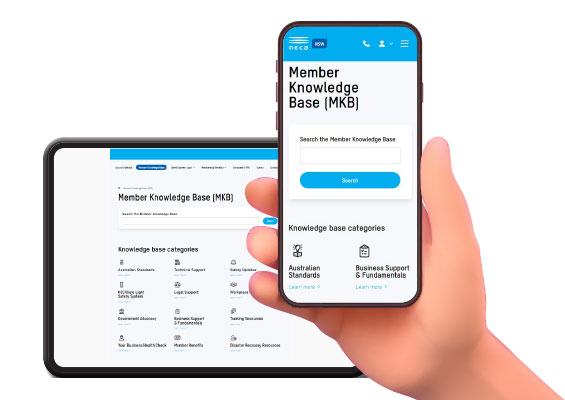When you become a member of NECA, you become part of a network of over 6,500 electrical and communications contractors across Australia that provides you with tools, resources and support from NECA's in-house specialist teams.

In-house Specialist Teams
All NECA members have access to phone and email support with NECA's Technical, WHS, Legal and Workplace Relations teams.

Advocacy & Policy
NECA's specialised experts dedicated to managing relationships with government and advocating for NECA member's interests at a state and federal level.

Niki - Your NECA Virtual Expert
Available 24 hours a day, 7 days a week, Niki offers quick access to expert knowledge on technical, safety, and industrial relations matters.

NECA's Member Knowledge Base (MKB)
An online searchable resource hub including Industry Australian Standards, HSEQ documents and SWMS, Toolbox Talks and its own Google & Apple Apps!

NECA Awards, Conference & Industry Events
NECA hosts industry events that bring member's together with leading industry experts, thought leaders, innovators & decision makers.